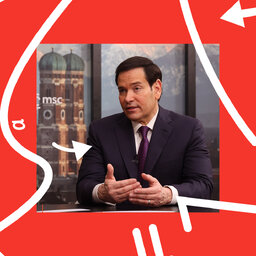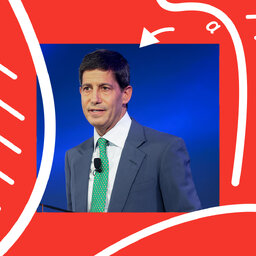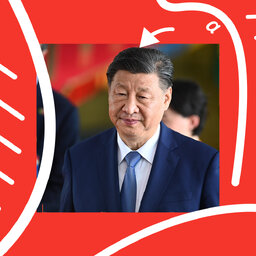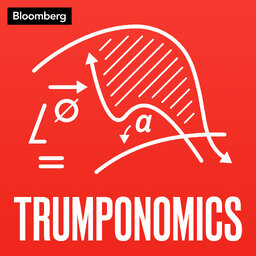For the past three decades, South African politics have been defined by the African National Congress. But with initial forecasts from the May 29 vote showing a marked decline in support for the ruling party, change looks likely.
So what do the various potential outcomes mean for South Africa’s growth and debt outlook? For investor interest in the country? Bloomberg Opinion columnist Adrian Wooldridge and Senior Executive Editor Jacqueline Simmons review the landscape with Bloomberg economist Yvonne Mhango.
In 1 playlist(s)
Trumponomics
Tariffs, crypto, deregulation, tax cuts, protectionism, are just some of the things back on the tabl…Social links
Follow podcast
Recent clips

What Munich Means for the Shifting Global Order
28:47

Understanding Kevin Warsh's Plan for the Fed
31:28

How Trump’s Year of Disruption Has Only Helped China
27:24
 Trumponomics
Trumponomics